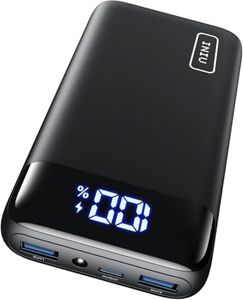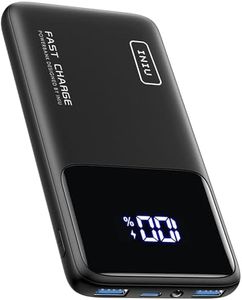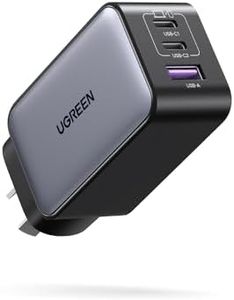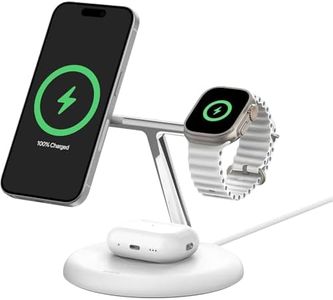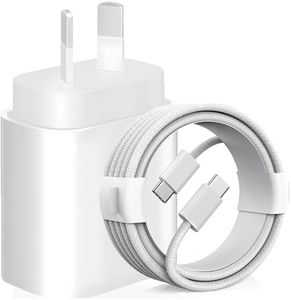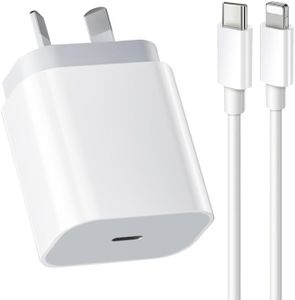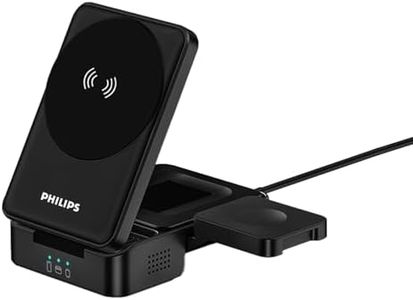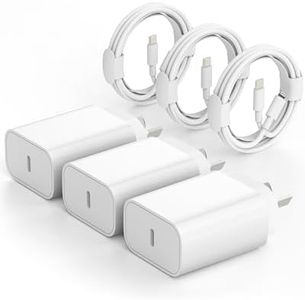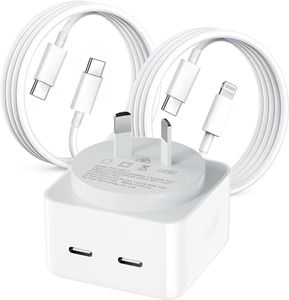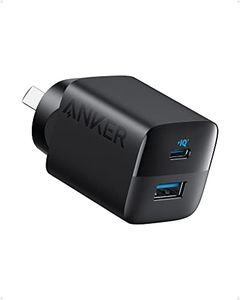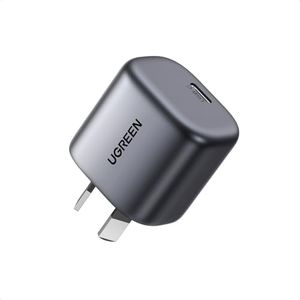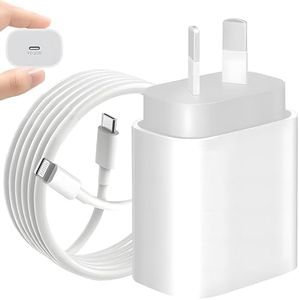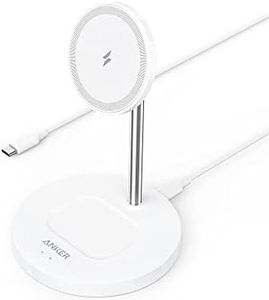We Use CookiesWe use cookies to enhance the security, performance,
functionality and for analytical and promotional activities. By continuing to browse this site you
are agreeing to our privacy policy
10 Best iPhone Chargers
From leading brands and best sellers available on the web.By clicking on a link to a third party's website, log data is shared with that third party.
Buying Guide for the Best iPhone Chargers
When choosing an iPhone charger, it’s important to focus on compatibility, charging speed, safety, and charging habits. The right charger can not only power up your device efficiently but also help maintain your battery’s health over time. With the variety of charging options available—like wall chargers, wireless pads, and car adapters—it helps to understand your daily needs and habits to find the best fit.Charging Power (Wattage)Charging power, usually measured in watts (W), affects how fast your iPhone will recharge. A higher wattage means faster charging, but only if your iPhone supports it. Most modern iPhones support fast charging up to 20W or more, while some older models are limited to slower charging speeds. For everyday use, a charger with at least 20W is a good fit for quick top-ups if your phone supports it, but if you are mainly charging overnight, a lower-wattage charger is sufficient. Matching the charger’s wattage to your iPhone’s compatibility ensures you’re not over- or under-charging.
Connector TypeThe connector type determines if the charger will plug directly into your iPhone. Traditionally, Lightning connectors were standard, but newer iPhones may support USB-C. A charger must have the matching cable—USB-C to Lightning or USB-C to USB-C, depending on your iPhone model. If you use other gadgets, a charger with extra USB ports may be useful. Picking the correct connector keeps your charging routine simple and avoids unnecessary adapters.
Safety FeaturesSafety features protect your device from problems like overheating, overcharging, or short circuits. Look for chargers with built-in safety certifications (such as MFi, which stands for 'Made for iPhone'), surge protection, and temperature control. These features are important because they help prevent damage to your phone over time and provide peace of mind while charging. Users who often leave devices charging unattended should pay special attention to safety ratings.
Portability and SizePortability and size are important if you travel or want to keep a charger in your bag or car. Small, foldable, or lightweight chargers are easier to carry around, while larger chargers with multiple ports are better for charging several devices in one place. Consider your charging habits—if you’re mostly at home, size may not matter, but frequent travelers should look for compact designs.
Wireless vs. Wired ChargingWireless chargers let you charge your iPhone by just placing it on a charging pad, while wired chargers need a cable. Wireless charging is convenient and neat but may be slower compared to wired fast charging. Wired chargers are best if you want the quickest refill or to use your phone while charging. Think about where and how you use your charger most—do you prefer speed or convenience?
Durability and Build QualityDurability means how well the charger and cable will hold up to regular use, bending, and plugging in and out. Chargers made with strong materials, reinforced cables, and robust plugs tend to last longer. If you’re rough on your gear or charge in busy locations like offices or school, opt for chargers built to withstand wear and tear.

